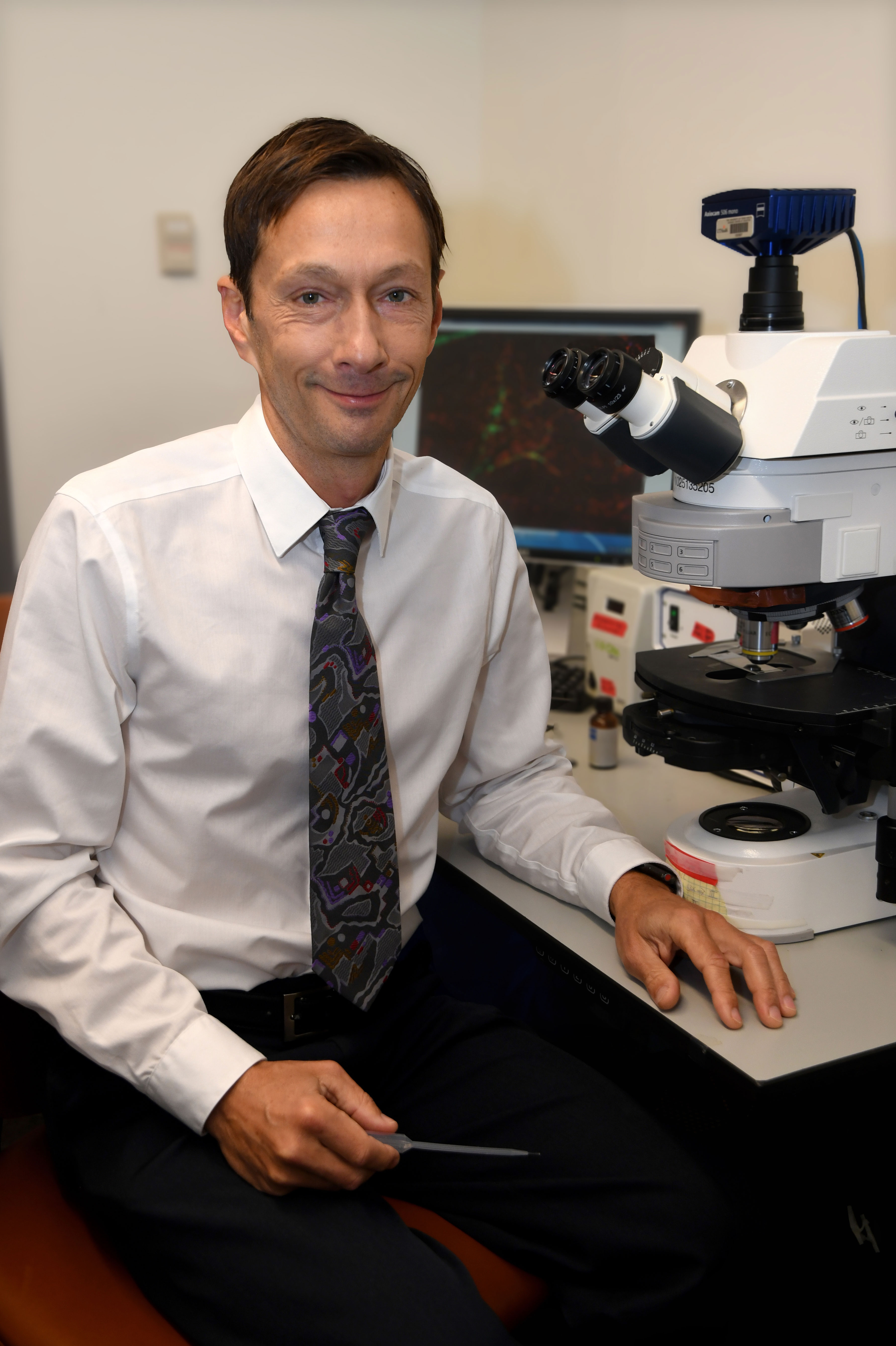 Aging. There is not much we can do about it – or is there?
Aging. There is not much we can do about it – or is there?
The causes and effects of cellular aging on the body are a growing research focus for Mikhail Kolonin, PhD, professor and director of the IMM’s Center for Metabolic and Degenerative Diseases. By understanding aging at the cellular level, researchers aim to target therapies to stop disease and degeneration.
“Our lab is working to understand how aging in various cell types contributes to aging of individual organs and the body as a whole,” explained Kolonin, holder of the Harry E. Bovay, Jr. Distinguished University Chair in Metabolic Disease Research.
The main focus is on stromal cells. “Stroma shapes our body’s connective tissue scaffold, which, along with the skeleton, provides support to all of our vital organs,” he explained.
The aging of stromal cells impacts numerous diseases, such as obesity and cancer. “Stromal cells are very important for the proper function of the body,” Kolonin said. “They serve as progenitors of cells storing lipid in fat tissue and support the vasculature. Regenerative capacity of adult stem cells reduces with age and as a result of excessive calorie intake. That’s partly why we lose weight when we get older. It’s essentially a manifestation of cell aging.”
Stromal cells also can differentiate to activate the immune system – responsible for inflammation, secreting cytokines, which is conducive for developing fibrosis, sarcopenia, and other aging-associated conditions.
Cells show their age through senescence – the state at which a cell can no longer divide. Progenitor cells can divide as long as telomeres, the protective ends on the chromosomes, remain sufficiently long. Each time a human progenitor cell divides, telomeres shorten and they continue to do so until they reach the critically small size causing replicative senescence. “Everyone’s telomeres are different lengths at birth. For those who are unlucky being born with shorter telomeres, it will take fewer divisions of their cells until they cannot divide anymore,” he said.
The main factors regulating senescence are lifestyle and environment. “Our cells are subject to constant damage from free radicals. Factors such as sleeping/eating schedule, diet, exercise, and other healthy and unhealthy habits (such as smoking) all contribute to balancing cell stress,” he said.
Those who are obese typically eat more, exposing their cells to higher oxidative damage. “Fat cells overgrowing in obesity become hypoxic, malnourished, and start dying and releasing lipids,” he said. As a result, obesity tends to result in chronic inflammation and type 2 diabetes, which are linked with an increased risk of cancer development.
Kolonin and his lab have long studied the link between cancer and obesity. “If obesity is prevented, the risk of cancer decreases,” he said.
In collaboration with Columbia University, they are investigating the specific role of fat tissue-derived stromal cells in cancer progression. “Normally, if there is tissue damage, the stromal cells will engage in putting a temporary scar on the wound and helping it heal quicker. Cancer is a chronic wound,” Kolonin said. “So, the stromal cells are recruited to keep on fixing that wound as cancer-associated fibroblasts, and that process never stops, which results in cancer progression.”
Collaborating with Askar Akimzhanov, PhD, Department of Biochemistry and Molecular Biology, as well as with Canadian investigators, Kolonin’s lab has been researching how adipose tissue promotes cancer by making fatty acids available as energy sources and building blocks for cancer cells.
The lab is also collaborating with Kristin Mahan, PhD, associate professor, Center for Metabolic and Degenerative Diseases, investigating how circadian rhythm and feeding affect telomere length.
“Normally, progenitor cells in fat tissue divide in a cyclic pattern once a day after an animal eats,” Kolonin said. “But when mice are overfed, this pattern is lost and the cells start dividing more frequently, burning through their telomeres quicker, hence reaching the state of replicative senescence sooner.”
The lab also is looking at late-stage cancer progression and the loss of fat mass. “We are trying to understand the crosstalk between our fat and muscle tissues that is responsible for cancer-associated cachexia,” he said. “Once we identify the molecular triggers, we will be able to suppress body wasting and reduce cancer mortality.”